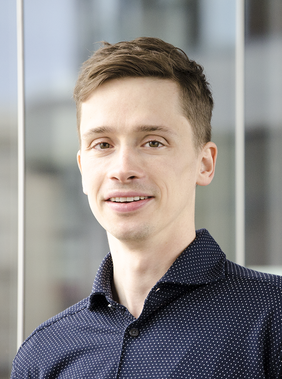will take place on Tuesday, October 1, 2019 from 15:00 to 16:00 hours in CBBM Building, Ground Floor, Seminar Room B1/B2.
Host: Prof. Dr. Sören Krach
Department of Psychiatry and Psychotherapy
University Hospital Schleswig-Holstein Lübeck Campus
Abstract
The hippocampal-entorhinal region supports spatial navigation and episodic memory, putatively through the mapping of cognitive spaces. In this talk, I will argue for the idea that coding principles discovered in spatial navigation research are shared across cognitive domains. For example, the regular firing patterns of grid cells in the entorhinal cortex supposedly provide a metric for cognitive maps. Hence, grid pattern distortions might affect cognitive functions. Employing highly immersive virtual reality technology, I demonstrate that — mirroring distortions of grid-cell firing patterns in navigating rodents — human spatial memory is distorted in a trapezoidal environment. These mnemonic distortions, which persist outside of the trapezoidal environment, are captured by a model grid system based on the successor representation. Beyond space, time is considered a second fundamental dimension for episodic memories. Using representational similarity analysis (RSA) of multi-voxel patterns, I show that the anterior-lateral entorhinal cortex maps the temporal structure of a learned event sequence and that this temporal map relates to memory recall. Cognitive maps stored in memory can guide behavior through the simulation of possible future trajectories. Combining human imagination with RSA, I show that compass-like representations in the parahippocampal gyrus and grid-like hexadirectional representations in the entorhinal cortex contribute to mental simulation. Together, these data are consistent with the notion that the hippocampal-entorhinal region supports memory through the formation of cognitive maps using coding principles discovered in spatial navigation research.
Biosketch
Jacob Bellmund is a cognitive neuroscientist interested in spatial navigation and episodic memory. After obtaining his Diploma (M.Sc. equivalent) in Psychology from the Philipps-University Marburg in 2013, Jacob Bellmund pursued a PhD under the supervision of Prof. Christian Doeller at the Donders Institute for Brain, Cognition, and Behaviour at Radboud University, Nijmegen, Netherlands. In September 2016, he moved to the Kavli Institute for Systems Neuroscience | Centre for Neural Computation at the Norwegian University of Science and Technology in Trondheim, Norway. Since December 2018, Jacob Bellmund works at the Max Planck Institute for Human Cognitive and Brain Sciences in Leipzig, Germany. Using functional magnetic resonance imaging, behavioral experiments and virtual reality technology, he studies the coding principles by which the hippocampal-entorhinal region supports flexible cognition.


